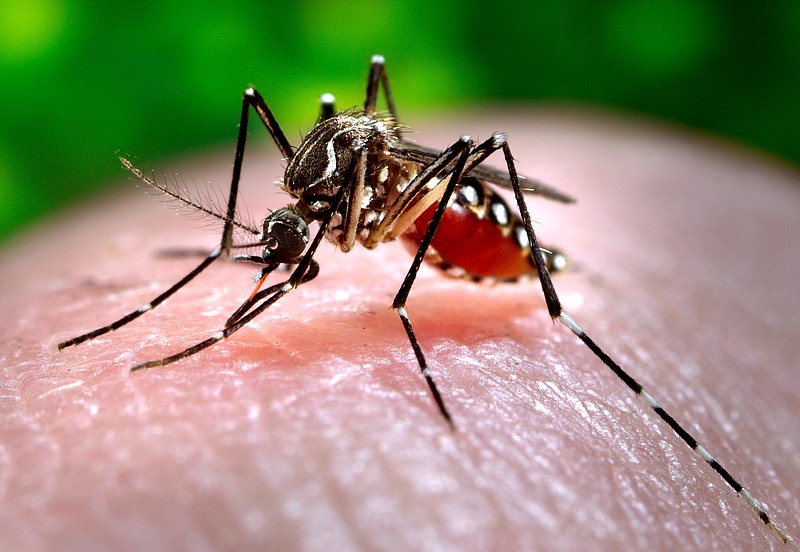Spring is in full swing, and the Tennessee Department of Health wants people who enjoy the outdoors to protect themselves from tick and mosquito-borne illnesses.
Ticks and mosquitoes are common warm-weather pests, but they can also be vectors for spreading pathogens in both humans and pets, and the prevalence of potentially serious diseases like West Nile virus, Zika and Rocky Mountain spotted fever is increasing.
Disease cases from mosquito, tick, and flea bites tripled in the United States from 2004 to 2016, and nine new germs spread by mosquitoes and ticks have been discovered or introduced since 2004, according to a recent report from the Centers for Disease Control and Prevention.
Bonnie Deakins, director of environmental health for the Chattanooga- Hamilton County Health Department, said the agency just restarted its mosquito surveillance program this spring, which was temporarily halted due to funding cuts, to address the concern.
The department distributed approximately 40 traps throughout the city and county used to collect mosquitoes that will be tested for the West Nile and Zika viruses in order to monitor possible outbreaks.
Although there's been no local transmission of Zika, "we just want to make sure that doesn't change," Deakins said. The virus is mild in most people, but it can cause severe birth defects if it infects a woman during pregnancy.
Other mosquito-borne illnesses, including West Nile virus, impact the region every year. In 2017, there were 30 human West Nile virus cases and 17 cases of La Crosse virus among Tennesseans, according to the state department of health.
There are no plans to collect ticks, but Deakins said tick-borne diseases like Rocky Mountain spotted fever and ehrlichiosis are reported to the health department through local providers.
Dr. John Dreyzehner, commissioner of the Tennessee Department of Health, said in a statement that typically a tick or mosquito bite will only cause an itchy spot on the skin or possibly mild, flu-like symptoms.
"But some of us can have a serious illness with major consequences like severe pain, long-term or permanent nerve or brain damage and even death," he said. "You just can't tell, and there are not vaccines or cures for some of these illnesses, so we all have to be careful and aware."
Deakins said people should protect themselves by wearing long sleeves, pants and repellent such as DEET, picaridin or oil of lemon eucalyptus on skin and permethrin on clothing and gear.
Also, be wary of the pests' favorite spots.
"The ticks are hanging on to all of the foliage just waiting for you to brush up against it so they can hang on," she said, and since mosquitoes like moisture, "tip or toss" anything that holds standing water.
Contact staff writer Elizabeth Fite at efite@timesfreepress.com or 423-757-6673.
